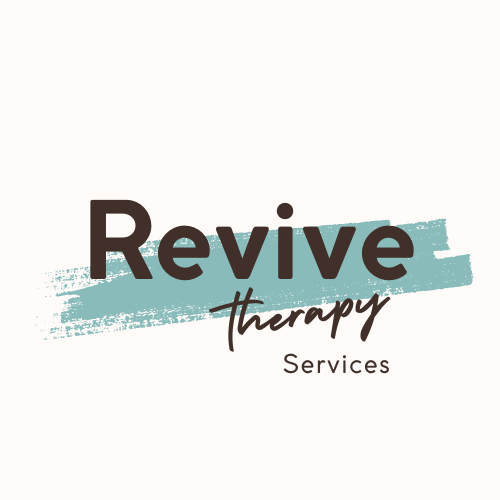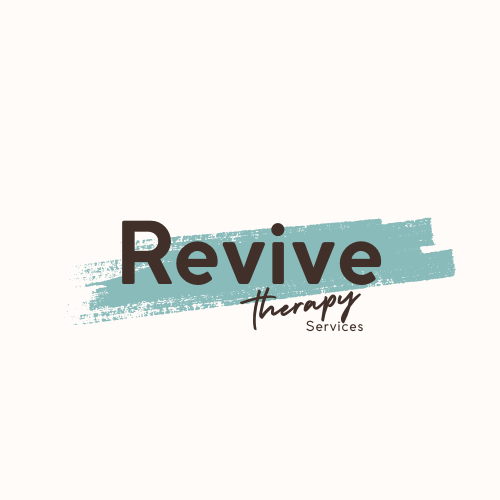What No One Talks About When It Comes to Binge Eating.
The Story of Hallie and Her Quest to Stop Binging.
Hallie comes home from a long day at work and feels exhausted. Work has been crazy and she’s also on this new diet where she’s already lost some weight. She feels determined to stick with this diet and finally lose and keep off the weight. Hallie believes once the pounds are dropped, she will feel more confident in herself which will help her get that promotion at work and start dating again. The only thing she has to do to get there is to lose weight.
Hallie’s plan starts unraveling.
Hallie has thought ahead and has meals prepped for this week. She pulls out her meal from the fridge, heats it up, and starts eating while mindlessly scrolling on social media. She finishes her meal and realizes she has a hankering for chips. Hell, she’s been “good” all day and she can eat a handful or two of chips. Two handfuls turn into three, then four, and soon Hallie realizes she’s eaten the entire bag of chips. Shame pours over Hallie as she looks at how much she’s eaten. She becomes angry at herself for not having more self-control. Because she’s already “messed up,” she reaches for the pack of cookies and starts inhaling them. After the cookies, she reaches for the ice cream in the fridge. At this point, Hallie feels uncomfortably full but for some reason, she just can’t stop. No matter how hard she tries, it’s like she’s a puppet and some other force is controlling her. The only positive to this is she does feel numb and the feelings of guilt and shame aren’t as present as they were before.
The next morning…
Hallie wakes up the next morning and remembers what happened last night. A flood of shame, disappointment, and self-hatred come over her. She notices how she physically feels uncomfortable and bloated. She knows her GI system is going to be messed up for the rest of the day. Hallie believes this is a punishment for her not having any willpower last night. She stands up and looks at herself in the mirror, criticizing every inch of her body. Hallie steps on the scale and sees she has gained several pounds overnight. A sinking feeling envelops her and her eyes start watering. She thinks, “How could this happen, I’ve been so good on my diet. I’m such a failure. If I just had enough willpower I wouldn’t be like this.”
Hallie pulls herself together and, to make up for her binge last night, she decides she’s going to skip breakfast and have a light lunch. She also decides she’s going to the gym after work to burn off some of the calories she ate last night. Hallie swears to herself that she will never binge again, that last night was the last time she will ever binge.
Well…Hallie does end up binging that night.
The cycle continues where she is trying to make up for her binges by cutting down on what she eats during the day. Hallie’s confidence in herself and maintaining this diet dwindles until she completely gives up and starts eating whatever she wants. She feels like something is inherently wrong with her and she’s always going to have a horrible relationship with food and her body.
*Hallie isn’t a real client I have worked with, it is just an example of common experiences related to BED.
Hallie isn’t the only one who has felt this way.
The story above is a common story I hear over and over with my clients who I see for binge eating treatment in Pennsylvania. Every time a new client starts working with me they share a story similar to the one above. I see how much shame, embarrassment, and disgust they carry. Additionally, I see how they think it is their fault they are struggling when I know in reality, it’s not about willpower at all.
The number one eating disorder in the USA.
Binge Eating brings a significant sense of shame and embarrassment which really hinders people’s ability to seek help. Hell, it can be hard to even know what you’re doing is technically binging. Most people will say they are emotional eaters when emotional eating is synonymous with binging a lot of the time. Because of this, people aren’t even able to look for the type of support they need due to the lack of language.
Let’s Normalize Binging.
I know, I know, it kind of sounds crazy that we would want to “normalize” binging. There will be people who say that if we “normalize” binging, people are going to go binge more. This isn’t the case though, binging isn’t a pleasant feeling that people intentionally plan to do all of the time. The purpose of normalizing binge eating is to decrease the shame and embarrassment surrounding it. Shame prevents people from feeling like they deserve help. It gets in the way of people seeking out support. It creates a toxic environment where you isolate yourself from others and feel like you are the only person who is struggling. It’s okay to feel shame and embarrassment around binging. I do want you to know there is nothing wrong with you and you shouldn’t have to struggle alone.
How do people develop Binge Eating disorders?
Like with most eating disorders, there isn’t one specific cause. Hell, there are so many factors that can contribute to it. Such as genetics, family history, socioeconomic status, culture, access to food, etc. However, I want to focus on childhood development and its relation to Binge Eating treatment and disorders.
No one taught us how to emotionally regulate.
Up until somewhat recently, parents were told that the primary focus of raising a healthy child was to make sure they had food, water, shelter, and clothes on their back. The idea was if you were able to provide all the physical needs of your child, you would have a well-adapted and successful child.
It’s bigger than just physical needs being met, we now know that emotional needs also need to be addressed. Unfortunately, many people don’t know how to meet their own emotional needs so they aren’t able to teach their children about emotions. Do you know that kid in the grocery store that's having a tantrum and the Mom starts yelling at them to stop crying and get off the floor? Yes, it can be incredibly annoying for you as a customer to hear a child shrieking in the store.
However, what is really happening is that that child’s nervous system (where they carry emotions) is highly dysregulated. The Mom responds in anger and frustration which teaches the child that when you feel too much, others will become angry and you will get in trouble. That child carries this belief with them into adulthood and now doesn’t know how to handle overwhelming emotions.
Let’s continue with the example of the child in the grocery store.
They’ve learned that intense emotions are bad and will even get them in trouble. However, they have to cope with their intense emotions in some way. What the child ends up realizing is that food is really comforting. While they’re eating food, those intense emotions subside. It’s actually pretty innovative if you think of it. The brain will adapt and find another method to help with intense emotions. Unfortunately, the way the brain has learned to develop this is by shutting down and eating food.
Binge Eating is a form of Dissociation.
Dissociation has become a more well-known term that people are throwing around, however, I want to define what it actually is: It’s when you disconnect from thoughts, memories, feelings, and your body. When people binge it is a way for them to dissociate from the intense emotions they’re feeling. If we use Hallie’s story, she was feeling so much self-hatred and shame, she was able to use food to help herself “calm down” at the moment.
Your body is going to do what it has to do.
On top of being a way to cope with intense emotions through dissociation, there is also a physiological component. I want to take a second and talk about the “restrict and binge eating” cycle. When we tell ourselves we aren’t allowed to have a certain type of food, it’s going to make our urges to eat that food stronger. Secondly, when we don’t eat enough food, our bodies start believing we do not have access to food and it makes our body go into starvation mode. When we’re in starvation mode, our brain takes over and tell’s us to eat as much as possible because our brain thinks we won’t have access to food in the future. (Even though this isn’t necessarily the case). We then feel guilty about the next day and start restricting again to make up for the binge the previous night and the cycle continues.
Willpower isn’t a thing when it comes to binging.
I know we’ve been told that the reason why we binge is that we believe we don’t have enough willpower, but it just isn’t true. You’ve learned to deal with emotions by binging because maybe no one taught you how to tolerate uncomfortable emotions as a child. You’re also stuck in the binge eating cycle that feels impossible to get out of.
Binge Eating isn’t the enemy
So hear me out on this, I know this sounds pretty crazy because it seems pretty logical that binging is the problem. Binging isn’t the problem, it is the symptom of the problem. Think of it this way, you’re drowning in the ocean and the only thing that might save you is a beat-up life raft that is constantly taking on water. Most people are going to use that life raft, no matter the condition because it is the only choice available to save your life. The same goes with Binging.
For some reason, your brain learned binging is the only “life raft” available to save you from whatever problems are present. By taking this approach, can you really be mad that the “life raft” (ahem..binging) has saved you? No way! Can you be frustrated that you’re still stuck on the life raft and want to get to shore? Hell yes! When we understand the underlying intention of binge eating is to keep us afloat from our problems, we develop more self-compassion and understanding.
So what is the best way to help decrease binging?
Learn emotional regulation skills
Remember that we binge as a form of dissociating from our actual problems? If we want to decrease binging, we need to learn how to cope with and tolerate the emotions surrounding our problems. This is where it is important to work with an eating disorder therapist who specializes in binge eating treatment in Pennsylvania. You can’t teach yourself how to regulate and feel your emotions if no one has ever taught you how to feel your emotions.
Stop dieting or restricting food
I know this is probably the last thing you want to do, but it is necessary if you truly want to stop binging. The more you engage in diets the more you are going to binge.
Eat regular and consistent meals/snacks throughout the day
Creating structure around food decreases binging because your body will be getting enough food consistently throughout the day which won’t put your brain into starvation mode.
Take it day by day
I know, I wish there was a quick fix to this, but this is a long game. There isn’t a time limit on your healing. Some days are going to be easier while others are harder. This is normal and even expected. No one expects you to “figure” it out completely.
Progress not perfection
It’s easy to stay in an “all or nothing” mindset when it comes to binging. You can be binge free for a week and feel proud of yourself, and then the next day you binge and you feel like it all goes to shit. It feels like you're back at square one. This just isn’t true. Failure is a part of healing. You are supposed to mess up. Go in with the expectation that you most likely will binge again in the future….and that’s okay.
Educate yourself
Knowledge is power. Get to know and understand binge eating disorders. Learn about the most effective and evidence-based research on how to best treat eating disorders. I’d recommend checking out the book “Anti-Diet” by Christy Harrison and intuitive Eating by Evelyn Tribole.
Find a therapist
You shouldn’t have to figure out how to heal on your own. I promise it’s going to be ten times harder. I’d recommend finding a therapist that takes a Health at Every Size (HAES) and Intuitive Eating (IE) approach.
Begin Binge Eating Treatment in Pennsylvania With A Skilled Clinician Today!
Struggling with binge eating is more common than you know. Don’t deal with the shame and guilt you’re experiencing alone. When working in binge eating treatment with Revive Therapy in Pennsylvania, you will work with Hannah Guy, your online binge eating therapist. When you’re ready to get started, follow these simple steps:
Meet your binge eating therapist, Hannah Guy
Start feeling in more control!
Other Services at Revive Therapy
It’s time to get the support you need. Don’t struggle through eating disorders alone. If you’re looking for other services at Revive Therapy in Pennsylvania, I offer other services. This includes eating disorder treatment, PTSD treatment and trauma therapy, body image issues, binge eating, and more. I offer support with EMDR therapy if you’re in need of more specialized support. Get support in a safe space via online therapy in Pennsylvania!




